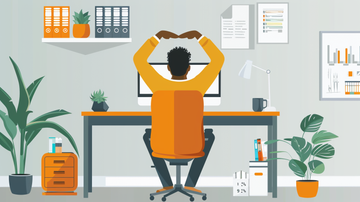The COVID-19 pandemic has left a lasting impact on the world, particularly in the way we work. With many people having experienced remote work for the first time and some returning to their offices, adjusting to the new normal can be challenging. In this comprehensive guide, we will explore how to cope with working life after COVID-19, offering advice and strategies to help you transition smoothly and maintain your well-being.
Embrace flexibility and adaptability
Post-pandemic work life is characterized by a greater need for flexibility and adaptability. You may find yourself navigating a hybrid work model that combines remote and in-office work or adjusting to entirely new office protocols. Embrace this change by being open to learning new skills, staying up-to-date with technological advancements, and adapting to different work environments.
Prioritize mental health and self-care
The COVID-19 pandemic has heightened the importance of mental health and self-care. Prioritize your emotional well-being by:
- Establishing a work-life balance: Set boundaries between your professional and personal life, and allocate time for hobbies, exercise, and relaxation.
- Practicing mindfulness: Engage in activities like meditation, yoga, or journaling to help reduce stress and improve mental clarity.
- Seeking support: Reach out to friends, family, or a mental health professional if you need help coping with the changes in your work life.
Improve communication with colleagues and supervisors
Effective communication is vital as we navigate the post-pandemic work environment. Keep in touch with your colleagues and supervisors by:
- Scheduling regular check-ins: Maintain open lines of communication, discussing work progress, expectations, and any concerns you may have.
- Using appropriate communication channels: Utilize the right tools for communication, such as email, video calls, or messaging apps, depending on the situation.
- Practicing active listening: Show empathy and understanding when communicating with others, acknowledging their feelings and perspectives.
Optimize your workspace
Whether you are working remotely or returning to the office, optimizing your workspace can enhance productivity and well-being. Consider the following tips:
- Ergonomics: Set up your desk with proper ergonomics in mind, including a comfortable chair, appropriate monitor height, and wrist support for typing.
- Organization: Keep your workspace organized and clutter-free to minimize distractions and improve efficiency.
- Personalization: Add personal touches to your workspace, such as photos or decorations, to make it feel more inviting and comfortable.
Focus on personal and professional development
Take advantage of the post-pandemic period to grow both personally and professionally. Some ways to do this include:
- Setting goals: Establish short-term and long-term goals for your career and personal life, and create a plan to achieve them.
- Pursuing further education: Consider enrolling in online courses, attending workshops, or obtaining certifications to enhance your skills and knowledge.
- Networking: Engage with your professional community, both online and in-person, to build relationships and stay informed about industry trends.
Cultivate resilience
Resilience is the ability to adapt to change and recover from setbacks. Cultivate resilience by:
- Focusing on what you can control: Rather than dwelling on uncontrollable factors, focus on actions you can take to improve your situation.
- Embracing a growth mindset: View challenges as opportunities to learn and grow, rather than obstacles to overcome.
- Practicing gratitude: Acknowledge the positive aspects of your life and express appreciation for them.
Conclusion
Navigating the post-COVID-19 work environment can be challenging, but with the right mindset and strategies, you can thrive in the new normal. By embracing flexibility, prioritizing mental health, improving communication,









